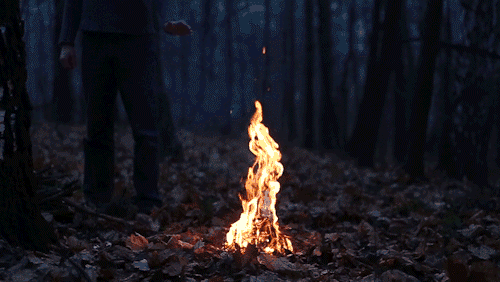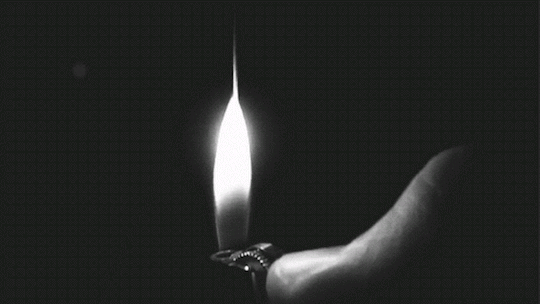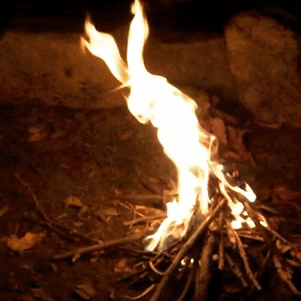#this is just me realizing that my baseline pain levels are higher than I thought they were
Explore tagged Tumblr posts
Text
I had a proper hangover for the first time in my life a couple weeks ago and that’s when I learned that what your average person deems debilitating is my average Tuesday
And now I sit with the thoughts of “THAT is what you think pain is? And you CANT work through that? You write off the entire day because of That?”
And “I’m not supposed to be having to work through That”
#also where I learned I have no desire to drink enough to make that happen again#I know this pain well why would I deliberately inflict it#also yes everyone experiences pain differently yada yada#this is not to belittle anyone’s experiences#this is just me realizing that my baseline pain levels are higher than I thought they were#I thought they were like a 2#work through em but is annoying and hurts#but they may actually be like a 7#to your able bodied scale#anywho I have had three days of migraines this week#I’m so done with it
10 notes
·
View notes
Text
I said I’d post the chironatural fic today and by god I’m doing just that
Mentions of past injuries, general discomfort, nothing really explicit or gory though. At some ambiguous point in canon, after they inherit the bunker. 1000-1500 words.
untitled
Dean is flat on his back on a table, no jacket or flannel, alone in a room with a woman eyeing him. He’s trying to not watch her - trying to relax, as much as he can in this situation - but it’s impossible. He’s got no weapons on him, which feels more baring than the lack of clothes. The room has no wards up, just some bags of salt by the window and the door. The most vulnerable parts of his body are exposed, hands crossed over his stomach like that’s any protection, but it’s nothing. It’s useless.
“Hm,” Alyssa says, and Dean can’t help the way he tenses up.
It’s a far cry from how he’d normally act in this situation - pretty woman, lying down, less clothes than usual - but the thing is, he’s not here for sex. And Sam hadn’t been either when Dean tailed him to this place, which, whoof, that had been a whole thing.
No, he’s here for some kind of fancy massage, at Sam’s insistence, and he already hates it.
He flinches again as Alyssa plops down on a stool. She’s sitting by his side, where his fingers are fisted into his shirt. “Alright. Your back is ten different kinds of fucked up, so unless you wanna tell me where it hurts most, that’s where I’m gonna focus. See if we can unglue your shoulder blades from your spine, get some vertebrae back in order, maybe drop your collarbones a bit if we’re lucky. Gotta start with the legs, though, get everything in touch with what I’m gonna be doing. Sound good?”
“Fine.” Dean grunts his assent, resolutely fixing his gaze on the ceiling. Alyssa’s got some weird doohickey hanging from a hook, the kind of thing you normally see over baby’s cradles, what’s it called? He can’t remember, but it has bees at the ends of the little sticks and threads. It’s spinning in gentle circles and he decides it’s the kind of thing Cas would be fascinated by, and hell, Cas would probably find this whole thing fascinating, he wonders how the angel’s doing-
Thinking about Cas stops working when he feels hands wriggle their way under his ankles. He jerks them away, bolting upright; hands automatically going for a gun that isn’t there, a knife that’s across the room in his jacket, and ending up in front of his body in a protective stance.
“Easy, tiger.” Alyssa lifts her hands, a calming gesture. “My bad. Shoulda warned you, it’s just been a while since I got a new hunter on the table.”
“New hunter?” Dean echoes, easing back down. The job he can talk about. Anything that’ll distract him from what’s happening right now to him, and hunters - hunters are good at that. He can talk hunting all day.
“Yeah, I’ve worked with the community since before I got my license.” Alyssa’s voice is relaxed, like Dean hadn’t just reacted like a prisoner of war to her feeling his fucking ankles. “Missouri came to me one day while I was in college, told me she’d sensed me for a while now. Didn’t know I was psychic back then - just thought I was good with people.” She chuckles. “I’m gonna touch you again. Just hands under heels, no strong grabbing.”
Her hands, when she settles in, are almost too hot against his Achilles tendons. Her fingers rest gentle on his skin, and if he focuses like he’s in a fight or on a monster’s trail, he can feel the barest changes in pressure from her fingertips. And if he focuses on that, he can feel the touches rippling up his legs, like she’s walking along his nervous system and seeing what’s what inside his body. Some go higher, to his shoulders, his sternum, his - cheekbones, huh, that’s weird.
“Psychic?” he asks, because the sensations aren’t helping his heart rate. Distractions, he needs a distraction. “Not like Sam, are you?”
“Sam’s psychic?” she responds, sounding curious, and Dean curses himself internally. “Wouldn’t’ve guessed it; he doesn’t give off energy like Missouri does. But then again, she’s the only other psychic I know, so it’s not like I have a good baseline.
“But, yes, I’m psychic. Low-level.” Dean feels the fingers on his left ankle grip a little, draw back. He suppresses a weird urge to cough. “Can’t move stuff or see the future or anything like that. I just have a real good sense of what people are feeling, which helps with the chiropractic a lot. Especially you hunters, you’re all too proud to say what’s hurting, so I gotta tune in a little to really do my job.” She says it with a cheeky grin, then frowns. “Oh, that’s a real bitch of a left knee you’ve got there, isn’t it?”
“...Yeah.” Dean feels a heavy sigh leave his lips. Psychic, and chiro-whatever hippy shit. Fantastic, great, thanks a lot Sammy. “Got dislocated a couple years ago, acts up sometimes. Isn’t too bad.”
“You want me to work on that or on your back, then? Dislocations can come back when you least expect them, and I know you need your legs for hunting.”
Memories of Bobby in a wheelchair, defeated in a way Dean had never seen him before and never wants to see again. His dad on crutches when he was twelve, and Dean’d had to drive and cook and get supplies and take care of them all because the pain was so bad his dad couldn’t stop drinking. That time Jo’d had to half-carry him off a dock because his legs were numb and he was bleeding so bad. Dozens of other incidents, hundreds. A lifetime.
“Yeah,” he grounds out, “yeah, take care of the knee.”
Alyssa nods, and Dean shivers when her hands slip away from his ankles (and suddenly his senses kick back in full force, there’s so much happening he can’t focus he’s drowning in it and it twinges it spasms it hurts he can feel everything)
But then she’s back, one hand below the offending knee and the other atop his thigh, and the warmth he hadn’t realized he’d gotten used to spreads back through him.
“Relax, Dean,” Alyssa murmurs, barely paying attention to her own words.
Dean, to his surprise, staring up at the lazily spinning bees and thinking about everything and nothing - does just that.
#My writing#chironatural#spn#dean winchester#original female character#in which dean is incredibly uncomfortable and then isn't#and he can't explain why#THIS SCENE HAS BEEN IN MY HEAD SINCE I STARTED THINKING ABT CHIRONATURAL#only took like seven tries but i wrote it and i'm proud of it and i am delighted by it :D
9 notes
·
View notes
Text
entry 3 night 32
It’s hard to admit when I have good days--especially now. The baseline emotion for most of my life has been anxious, depressed, or hyper-focused. Being on my own, I feel those things more often than not. So the question becomes: what does a good day look like? If I happen to get my checklist done or go a day without a complete meltdown, does that mean I had a good day? What quality of life can I qualify as good when it seems like the world is crumbling and I’m just trying to keep my head above the sand?
To summarize yesterday, day 31: meh? I felt really grateful to have lots of calls with people. I talked with my mom, my girlfriend, my ex-girlfriend, an old best friend from high school, new friends at a Jewish queer grief workshop, and my dad. So I guess it was a good day, at least by social standards. I even went on a walk--after breaking down in tears about my ex-girlfriend, that is. It seems so unfair that I built a life with her for 6 years and now she is sheltering in place with someone else. We just broke up in December. She fell out of love with me while falling in love with someone else. She denied her feelings, lacked adequate communication skills to connect with me, and didn’t make any attempt to address these issues despite how many times and ways I explained how to. But she’s been my best friend for such a long time. I miss her and I need her in my life right now. No one else is coming to see me in person because they’re all too wrapped up in their own lives. I don’t blame them--I know this is a really hard time. I’m just in a shitty situation and I wish I had someone to be with me. So as much as it’s painful to see my ex, speaking with someone in person has been one of the best parts of these last few weeks. It was also so indescribably wonderful to hear from DT, my best friend from high school. I hadn’t spoken to him for years. He had been struggling with addiction for a long time when he took a very toxic turn and seemed to deny help that was available to him. It was a really difficult decision to stop speaking with him because I was afraid that I would never be able to again. But it sounds like he’s on a good path. Whatever the future of our friendship holds, I’m overjoyed that DT is finding ways to grow and be healthy. I also really enjoyed talking to my dad over video chat. Even though he doesn’t always say the right things, just the sound of his voice and look on his face makes me feel loved. At the same time, I think his words and mentality definitely contribute to my stress surrounding daily personal achievements. He encouraged me to write New Yorker styled essays about my political visions and opinions--as he always reminds me, he’s long thought that I “could be a Susan Sontag of this time.” I tried to explain to him that I’m having trouble completing basic tasks--that aiming so high doesn’t seem effective right now when I would just be setting myself up for disappointment. He praised my self-awareness in wonder as if it was an alien concept. At the end of the day, it feels like so much emotional energy is spent just trying to exist on my own that I end up spending all my time trying to feel better. And I suppose it works. I mean, hey--I’m alive, right? (...Right?) It just doesn’t feel as rewarding as I want it to be.
I woke up at 9 today and felt unusually ready to get out of bed. The sky was blue and I was looking forward to my therapy appointment at 10. I listened to Democracy Now, read more news, ate an apple, and made some coffee. After my therapy appointment, I did lots of chores (cleaned the bathroom, scooped the litter boxes, vacuumed the living room, took out trash and recycling, did laundry, etc.) and took a shower. I spent a long time fixating on pimples across my body in between doing chores and showering--something I’ve managed to avoid by covering the mirrors. But alas, some mirrors were not covered, and I found myself deciding that it was a good time for “extractions.” To compensate, I put on a clay mask while I was in the shower--because that makes it even, right? (No, seriously, someone tell me I’m right.) After that, I got dressed and had a long phone call with my boss. She asked me to complete a number of very doable tasks, which made me feel driven and responsible but also tired and overwhelmed. Then, I had already committed to writing my first letter to a pen pal today, so I quickly jotted down an introduction and taped inside a cute mini watercolor landscape with a rainbow. At that point, I realized that I hadn’t eaten anything since the morning. I snacked on some sunflower seeds and then ate a peanut butter and jelly matzah “sandwich.” My mom called and we caught up a bit. I started getting super stressed overhearing her yell at her dog for barking and being anxious when she never even walks him. Of course he’s barking--I would be the same way if I lived in that house like he does. As a way to end that conversation, I decided to call my grandparents since it had been a few days and ended up speaking with my grandpop about the future of virtual higher education while putting my letter in the mailbox. Then, a new friend offered to get me groceries! I drafted a watercolor painting to give them as a thank you (in addition to buying extra food for their organization’s food pantry). Finally, I video chatted with IsO while making matzah brei, stretching, and now writing this entry. I’m really grateful that IsO has been calling me more frequently. I’d like keep this level of contact with them but I’m afraid to get my hopes up. They can be a bit flakey sometimes and I’m not sure how much more rejection (even slight ones) I can take. I guess that’s a problem for future me, though. For now, I’ll try to be content with the time that I have and the things that I managed to do with it--whatever that looks like.
0 notes
Text
Enlightenment Issues
In 1974 Hans Burgschmidt was sixteen years old, living in the Canadian Prairies, working in a photography studio darkroom, elbow-deep in chemicals all day long. "Is this what life is about?" he asked a high school friend. "You need to meditate," was the reply.
Not long after, Hans attended a lecture at the local library, where a man in a suit spoke about the scientific benefits of relaxation. He pressed Play on the industrial-sized U-Matic video player and there was Maharishi Mahesh, the Indian yogi who initiated the Beatles into the mysteries of Transcendental Meditation (TM) and launched the meditation careers of thousands of Western devotees.
"An infinite ocean of peace and love and happiness awaits you," said the radiant Maharishi, with his flowing hair and his garland of flowers. "What's not to like?" Hans thought, and got in touch with a local TM chapter.

Soon after he began his meditation practice, exactly as advertised, he found himself transported from his parent's basement into a shimmering inner space of light and colour and bliss. "Eventually you get so expanded and the mantra becomes so refined that you are taken to the silent source of thought – it was wonderful."
Hans was hooked. Next, he enrolled himself in advanced courses and in the late 70s he left for Maharishi International University in Fairfield, Iowa, hoping to become a teacher.
But somewhere along the line Hans became disenchanted. Maybe it was the dubious "levitation" training, or the dogmatism of his fellow teachers, or the "almost abusive" way the school administrator overworked their staff. "The discrepancies between what was promised and what was really happening kept growing," Hans told me. "Eventually I had to move on."
Thus began Hans' long career as an itinerant spiritual seeker. He hit all the New Age mainstays: Osho and then Da Free John in the 80's, trance channeling and primal scream therapy and past life regression in the 90's.

But the same pattern of finding the limits of the guru or the practices kept repeating itself. Finally in 2006 he met a teacher he could trust – one of my own teachers, in fact – the Buddhist scholar and future neuroscience-consultant Shinzen Young. "No BS, real down to earth, just an ordinary guy teaching a well-crafted version of techniques that have been tested by Buddhists for thousands of years."
The technique was vipassana, one important – and increasingly popular – aspect of which is known as "mindfulness."
"I found it invigorating," says Hans. "It was much more active than other techniques I had learned, I could feel the power of it."

The Shadow Side of Meditation
Everything was fine, until three weeks after his first retreat, when, in Hans' words, "something changed." My sense," says Hans, "is the technique precipitated something that was already there. I mean I had done a lot of meditating in other traditions by then. They softened me up. Whatever the case, I don't think it could have turned out any other way."
Hans was at home making his bed, when the room suddenly appeared "very far away." But the room hadn't changed; he had. The part of Hans that had once looked out at the world, the core we take for granted as the "self", had without any warning disappeared.
To understand what happened to Hans, you need to understand something about how meditation works in general, and vipassana in particular. Most meditation techniques are designed to shift a person's orientation from a limited personal identity to the broader ground of their experience.
Vipassana does this by deliberately and systematically untangling the different strands that make up our sense of self and world; in the Pali language (the ancient Indian scriptural dialect of Buddhism) the word "vipassana" means "seeing into" or "seeing through."
Practicing vipassana, you have more space to make appropriate responses, and more space, too, around your looping thought-track, which can dramatically reduce stress and anxiety as well as raise a person's baseline levels of happiness and fulfillment.
This is one reason why mindfulness has become the technique of choice for thousands of clinicians and psychotherapists, and there is now a considerable body of scientific research demonstrating these and other benefits.

Yet most of the clinicians who so enthusiastically endorse mindfulness do not have a proper understanding of where it can lead. The fact is that mindfulness in large doses can penetrate more than just your thoughts and sensations; it can see right through to the very pith of who you are – or rather, of who you are not.
Because, as Buddhist teachers and teachers from many other contemplative traditions have long argued, on close investigation there doesn't appear to be any deeper "you" in there running the show. "You" are just a flimsy identification process, built on the fly by your grasping mind — a common revelation in meditation that happens to be compatible with the views of many contemporary neuroscientists.
In fact, the classic result of a successful vipassana practice is to permanently recognize the impermanence (anicca), the selflessness (anatta), and the dualistic tension or suffering (dukkha) of all experience, which may sound like an Ibsen play, but this is the clear empirical understanding that many otherwise sensible practitioners report.
For most people this shift is the most profoundly positive experience of their lives. In the words of Shinzen Young, "it allows a person to live ten times the size they would have lived otherwise, it frees them from most worries and concerns, it gives them a quality of absolute freedom and repose."
But once in a while, something goes wrong. In Buddhism this is known as falling into "the pit of the void." Young is more modern: "Psychiatrists call it Depersonalization and De-realization Disorder, or DP/DR. I call it 'Enlightenment's evil twin'."

For Hans, what began as confusion and disorientation led within a few hours to extreme panic. The emptiness was ominous – in his words, a "deficient void." One moment the world seemed far away, the next it was too present, a "barrage" of overwhelming sensations. "It was like I had no protective filter or skin – sounds and sights became incredibly abrasive.
Hearing the phone ring was like someone running a thousand volts of electricity through me. I also had feelings of being stretched and twisted inside out, like I was morphing into some kind of animal. I had no idea what was happening – I thought maybe I was getting premature Alzheimer's."
Over the next few months Hans spent hours with Young on the phone, but despite the counseling, none of his symptoms went away – if anything, he says, the selflessness, the rawness of sensations and the associated fears became even more disconcerting. One by one, all the meaningful parts of Hans' life dropped away: his love of photography, of art, even his sex drive.
"I lost my will to do anything – none if it had any meaning. You could say that I no longer understood existence. I would wake up in the morning and go 'OK, this is my body, this is me, and I guess I'm doing this but I no longer understood it. I no longer understood agency, what makes other bodies move, what animates life.
Sometimes there was a wondrous quality to this bafflement – I felt the awe and the mystery – but most of the time it was aimless and tormenting."
Was Hans experiencing a slow-motion nervous breakdown unrelated to his meditation practice? Or was the experience of depersonalization triggered by meditation?
He was able, just barely, to keep working, although he says he has no idea how he was able to do this since, in his words, "I often couldn't understand what people were saying – all I would hear is the weird texture of their speech patterns, there was no meaning to any of it."
His own responses, too, came as a surprise. "At times I would hear myself speaking and I had no idea where the words were coming from or what they meant. I felt like an imposter."

The Dark Night of the Soul
Hans is not alone. If the very real benefits of mindfulness add up to the good-news mental health story of our time, then, like so many good things, there is also a shadowy seam, an experience known popularly as the Dark Night, after the writings of the famous Carmelite mystic St. John of the Cross.
More meditators and practitioners are beginning to speak openly about the challenges associated with practice. The importance of this cannot be overstated, for there are those in the scientific community who believe that taking these reports seriously may one day provide key insights into both mental illness, and the mystery of contemplative transformation. They may in fact be very different expressions of a single underlying dynamic.
Some researchers are already studying this. Willoughby Britton is a meditator and a clinical psychologist at Brown University. After encountering some of this difficult territory herself, she began an ambitious research project to document the full range of phenomena that can happen as a result of practice. The initiative is called "The Varieties of Contemplative Experience".
Over the past three years, Britton and her colleagues have conducted detailed interviews with over forty senior Buddhist (and some non-Buddhist) teachers and another forty or so practitioners about challenges they've either experienced themselves, or, in the case of teachers, seen in their students.
The study's current research design cannot answer the question of what percentage of practitioners run into problems, although Britton did tell me that serious complications that require inpatient psychiatric hospitalization probably affect less than one percent of meditators. "Milder, more chronic symptoms," she says, "will be higher – but no one knows how high."

The full range of symptoms, from mild to intense, include headaches, panic, mania, confusion, hallucinations, body pain and pressure, involuntary movements, the de-repression of emotionally-charged psychological material, extreme fear and – perhaps the central feature – the dissolution of the sense of self.
But, as she reports in a recent interview, the most surprising finding for Britton has been the duration of impairment, which she defines as the inability of an adult to work or take care of children.
"We've been deliberately looking for worst-case scenarios, so I expect this number will go down as we get more data, but right now we are finding that people in these experiences are affected for an average of three years, with a range of six months to twelve years."
Britton has found that two demographics seem to be affected more than other: young men aged eighteen to thirty, who, in the way of young men, go for months-long retreats in Asia and pursue hardcore practice and log ten to twenty hours of meditation a day. "We had to create a "Zealotry Scale" says Britton, dryly, "it was such a major predictor."
The other large group, she says, is middle-aged women. "These ladies have been going to, say, Spirit Rock Meditation Centre for last ten to twenty years, have a nice hour-a-day practice, and then seven or ten years into it something happens."
The situation is complicated by the fact that a period of difficulty is actually a perfectly normal part of many meditation practices. A well-meaning therapist might label this pathological, when what might be more helpful to the "patient" is guidance from an experienced meditation teacher.

Within vipassana traditions, some classic texts talk about the "dukkha ñanas" – challenging stages that are actually a sign of progress. These are a natural response to the layer of mind being exposed; with a teacher's help, the student can move through their Dark Night in a matter of days or hours. Indeed, some teachers argue that the skills practitioners acquire in coping with these passages are often the very ones that allow them to progress to more liberating stages of the path.
Shinzen Young writes, "It is certainly the case that almost everyone who gets anywhere with meditation will pass through periods of negative emotion, confusion, disorientation, and heightened sensitivity to internal and external arisings. The same thing can happen in psychotherapy and other growth modalities. For the great majority of people, the nature, intensity, and duration of these kinds of challenges is quite manageable."
According to Young, the real Dark Night occurs when, as in Hans' case, a practitioner has difficulty integrating insight into selflessness. This is something he says he has only ever seen a few times in his four decades of teaching.
Perhaps surprisingly, Britton's research has so far not revealed any clear associations between meditation-related difficulties and prior psychiatric or trauma history. Problems can occur in individuals with no identifiable red flags; conversely, individuals with multiple red flags (bipolar disorder, trauma history, and so on) can do intensive retreats without any difficulties whatsoever.
"We have to be careful," Britton told me, "about jumping to conclusions and excluding people prematurely from meditation's possible benefits. My personal opinion is that the place where we need most help is not in identifying at-risk people so much as improving support systems."
Britton gets two to three emails a week from people looking for help, so this is something she thinks a lot about. "Just talking about the experience with someone and hearing that none of it is new … this has a hugely positive effect on people.
That's eighty percent of what needs to happen. Just normalizing the experience." To that end, she has already founded both a space and a website to provide resources for practitioners in need, and also to educate teachers and clinician about the full range of meditation' effects.

"Length of impairment is directly related to how much access the student has to a good teacher. Many of the people I've spoken to have been through dozens of therapists and meditation instructors and most have no idea what to do."
Young has his own techniques for helping meditators work with Dark Night phenomena. Hans adds one more: serious fitness. "Pilates, weight-training, yoga – I now do it all. For me, I finally figured out that I needed to integrate these changes into my physical body. Ultimately this is what turned the corner for me."
Seven years after his drop into the pit of the void, Hans is arriving at a better place. Not a normal place, mind you – and here his laugh is a bit hysterical: "What's normal? I still live in emptiness and wake up every morning with no idea who I am."
But he no longer gets panic attacks, or feels ten thousand volts of electricity irradiate his senses every time the phone rings. His sex drive has returned, and with it a new longing for a relationship. He also has a strong interest in helping others manage similar problems.
"So much of it is about patience," he says. Over the past seven years, the words of one teacher kept circling around in his head: "If life gives you nothing you want and is not on your own terms, would you still have the generosity to show up for it?" There's no easy "yes" to that question.
0 notes